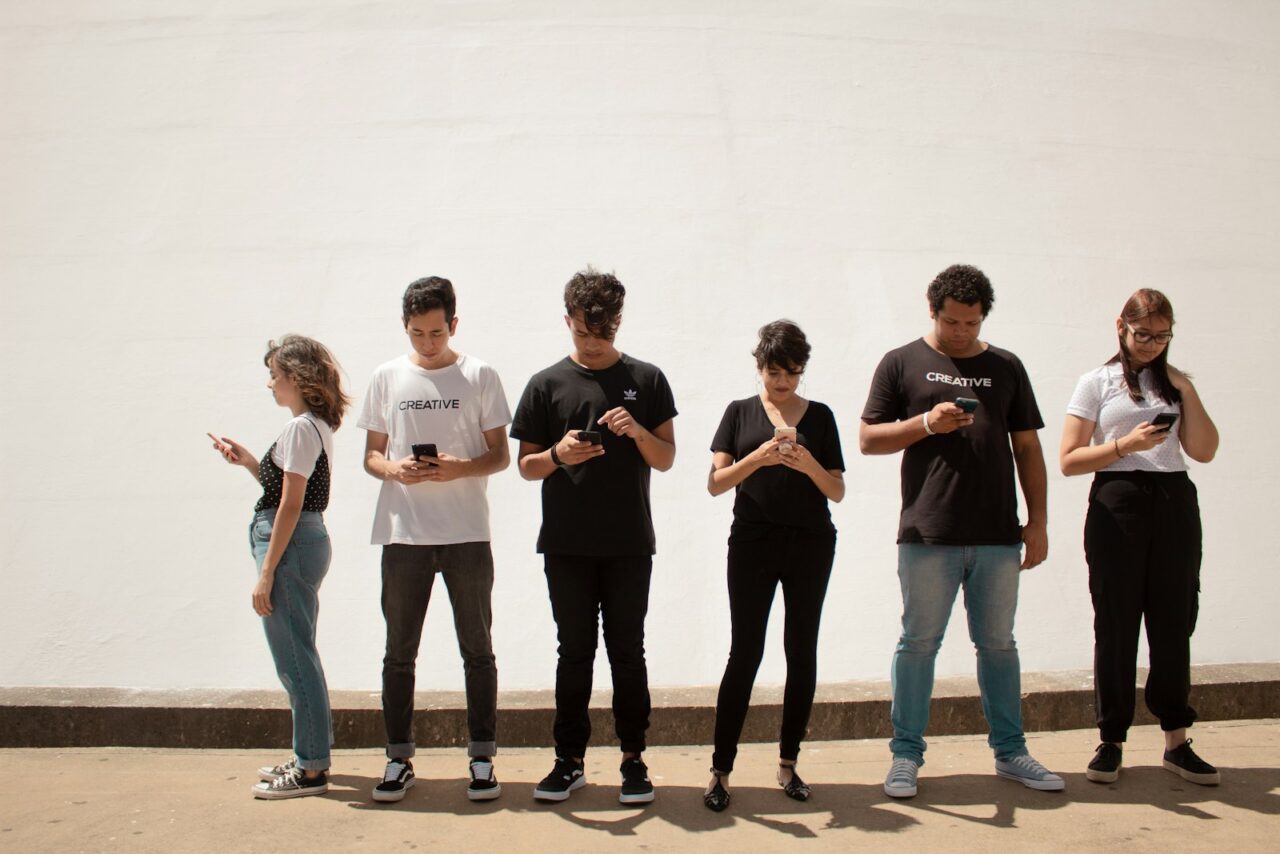Content warning: I do briefly talk about addiction in this post. I’d like to add a further disclaimer that I don’t write this to judge anyone else’s habits, I’m just documenting my own concerns and making changes I want to see in myself. If it helps someone else make a positive change, great!
When I was about eight years old, my parents brought home our first family computer. I was absolutely terrified of doing something wrong on it, and yet here I am 25 years later with a career in IT.
The real trouble began when we got access to the internet. I’ll probably talk a lot about attention (and privacy) on this blog, but it’s a big concern for me. As soon as my parents changed our dial-up internet contract from pay-per-minute to free evenings and weekends, I spent an unreasonable amount of time online for that era. I’m so grateful that I made a lot of friends, several of whom are close friends to this day, but I also know I got addicted to the internet.
The internet was, of course, the perfect way to stay connected to everyone during the pandemic. I’d always communicated with my online friends through the computer and later also the smartphone — it was my lifeline to that social circle. But the internet has significantly changed since GeoCities and fan forums, and I absolutely cannot allow myself to get sucked into social networks and content sites with never-ending scrolling and auto-playing videos.
In the last few years I started to notice how much I picked up my phone, and how often it annoyed me when other people were constantly on theirs. My eldest niece is now the age I was when we got our first computer, and I worry how smartphones and the current state of social media is going to affect her generation, especially their social interaction, attention spans and personal privacy. It’s far more addicting than what was available to me at her age.
In early 2022, I turned on Digital Wellbeing on my Android phone (iPhones have an equivalent feature called Screen Time) to see how my screen time and app usage looked. Did you know it’s possible to spend several hours a day on Reddit if you’re not careful, without even realising it? That’s probably obvious. Don’t get me started on YouTube Shorts — the experience has made me glad I’ve never joined TikTok.
I then removed all social media and other apps I perceived as time-wasting from my phone. Anything questionable that remained on my phone was limited to no more than 30 minutes a day before a timer told me to cut it out. I also turned off as many app notifications as possible — I only have calls, messages, banking apps, home security and multi-factor authentication alerting me. If I want to access social media, I do it on a computer, and most of the time that’s too much effort (the intention) so I don’t even bother.
In September, I read a book called How to Break Up with Your Phone, by Catherine Price.
Most interesting to me was the first half of the book, which in part detailed the psychology involved in the design of modern apps and services. Auto-playing videos and infinite scroll are intentional design decisions to keep you locked in. If you have to click or tap “next page”, that’s an interruption your brain has to process that might make you think it’s time to break away from that app or your device for a while.
I almost wish I’d started reading it before I did the above, but I’m glad I took the steps I did, because my phone usage had already become much more mindful. A lot of the 30-day plan was action I’d taken before, but I did benefit from journalling about the changes I’d like to make and whether I was seeing progress or not.
I still have some bad habits. I use my phone as an alarm clock, and I still use it in bed — look, sometimes I have to read until my mind stops racing, or my Duolingo streak is about to break. But I have drastically cut down on using my phone and I’m proud of how far I’ve come, especially in social situations. I try to keep my phone in my bag or jacket and if I do need to use it for something, I put it away as soon as I’m done.
It is of course a very convenient device to have when you’re out and about. So if I do pick it up to kill time, I continue an ebook, read a saved article in Pocket, or get a language lesson in.
Like anything really, it’s been about being mindful, making small changes and adjusting habits. When I message, call, or meet up with my family and friends, I like engaging with them personally and directly, and finding out their news directly from them. Do you know what else was a nice side effect? My phone battery lasts forever now, and my reduced usage means I won’t bother buying a top-of-the-range phone next time I replace it.
If you’d like some interesting longer reads about the modern attention problem, please check these out:
We once had a law to defend human attention. It’s time for an update. (Washington Post, about 7 minutes)
On Digital Minimalism (Cal Newport, about 12 minutes)
Your attention didn’t collapse. It was stolen (The Guardian, about 15 minutes)
How Technology is Hijacking Your Mind — from a Magician and Google Design Ethicist (Medium, about 15 minutes)

Leave a Reply